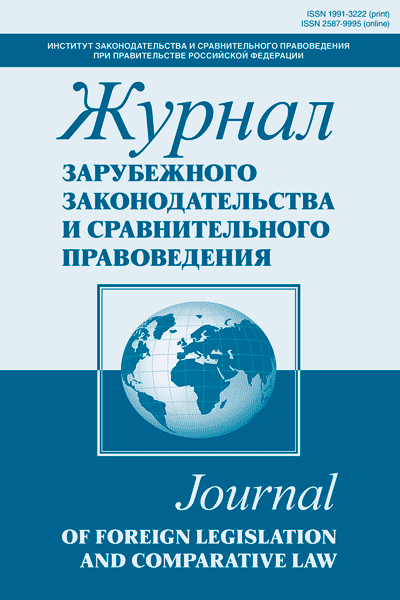Russian Federation
Russian Library and Bibliographic Classification 67
This article describes the main provisions of the normative theory of promises in the Anglo-American legal discourse. Under this theory, which going back to the origins of natural law concepts, the nature of a civil contract expresses in the volitional act, and the reasons of the obligation of promises are the principles of morality. The author has made a critical evaluation of the position of the normative theory of promises which puts the morality as the primary regulator of the Institute of the contract. As a result the author shows that only morality in a legal dimension, namely the dimension of justice, may act as regulators of the private law. The concept of justice evolves, and today in a civilized society is expressed in two maxima: equality and freedom. And if the first dimension is known back to Roman law and its details was developed by Aristotle, but the humanity has realized the individual freedom as the manifestation of justice not so long ago. The question on relationship of morality and law is as relevant as ever for Russian legal reality, which has been subject of expansion of the good faith principle. Violation of the good faith principle in law enforcement often means the moral condemnation of the behavior of the civil turnover participant. Thus, the morality often goes beyond the justice, and, therefore, outside the scope of legal regulation. In present article the author proves the inadmissibility of such approach. The assumption of morality in the regulation of private legal relations enhances the feeling of legal uncertainty, and becomes a reason of a number of practical problems, in particular, the problem of the source of attitudes, which were conventionally recognized as a moral attitudes, and the problem of the court decision in case of presence of antagonistic moral attitudes, which are equally recognized by the law enforcement authority.
normative theory of promises, natural law, correlation of morality and law, justice as a legal principle.
No data
1. No data





